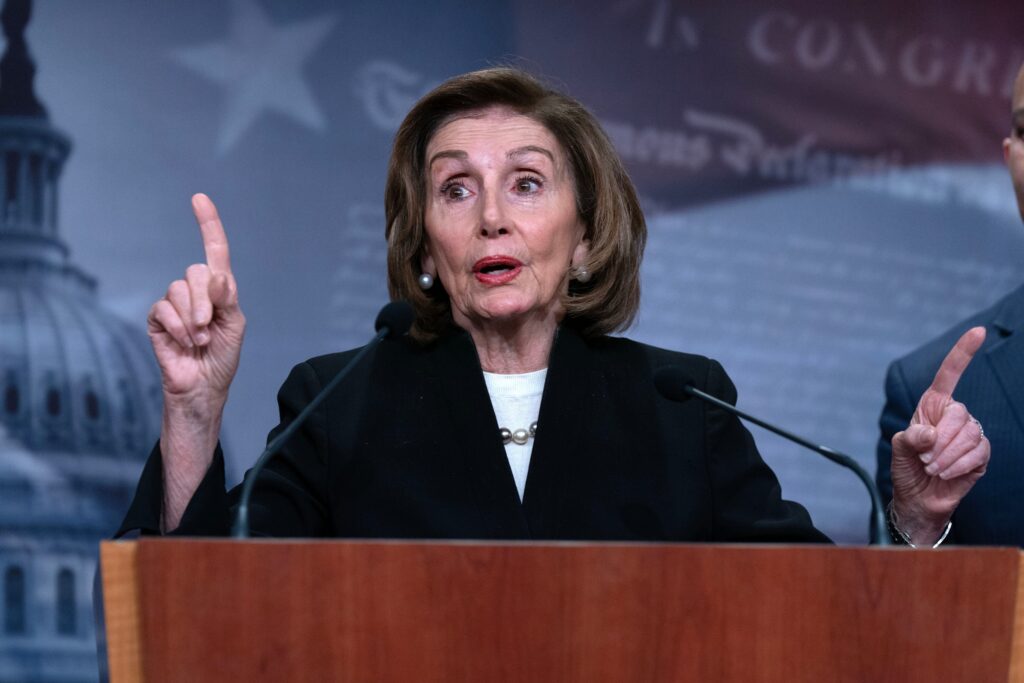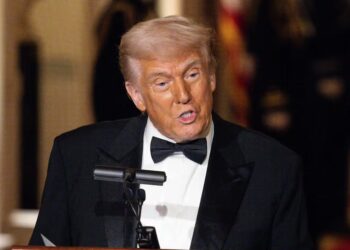The Nov. 20 online Early Brief “Should members of Congress trade stocks?” failed to differentiate between a real potential problem and a problem of perception. The real problem is whether “the ultimate insiders” can avoid “insider trading.” It certainly is the case that in the course of their day-to-day business, members of Congress encounter information relevant to trading corporate stocks.
If known a few days or even hours before it becomes public, this “inside” information could allow a lawmaker to unfairly benefit their personal finances at the expense of other market participants.
On the other hand, allowing members of Congress to own publicly traded stocks is not a real problem, even if it arguably contributes to the low approval ratings and level of public trust. Members of Congress are already required to complete financial disclosure forms on a regular basis that identify the stocks and other assets that they hold — information that is available to the journalists and voters who can hold them accountable. Nothing is accomplished by disallowing members of Congress from making long-term investments in America’s future, given the level of transparency that is required to be in their role.
To address the real potential problem of insider trading, I propose strictly limiting the times when members of Congress can buy or sell stocks. For example, they could be allowed to execute trades at 10 in the morning on the first day the markets are open in each fiscal quarter. That should be combined with a requirement that detailed notice of these trades be filed with the Ethics Committee and posted publicly. Hopefully, dealing with the real problem will help ease the misconception that owning stocks creates an inherent conflict of interest for members of Congress.
David Klaus, Bethesda
The writer is a former deputy undersecretary at the Energy Department and was counsel to the House Energy and Commerce Committee.
Corruption is a threat to democracy
Zachary Karabell’s Nov. 19 op-ed, “Shocked by presidential profiteering? Here’s some perspective.,” did a valuable service in reminding us that President Donald Trump’s profiteering is not without historic precedent.
I agree that Trump’s actions are not a greater threat to democracy today than such was in the 1880s. However, there is a key difference that Karabell missed: There were practically no anticorruption laws then — certainly none that were very effective. Now, the country is planted thick with laws to prevent corruption.
Until today, those laws worked. They are not working now because of developments that are a threat to democracy: the unparalleled abuse of the pardon power (which extends to presidential associates), and postpresidential executive immunity for crimes committed while in office decided in Trump v. United States. Not to mention a supine Congress and a complicit Supreme Court.
Trump’s profiteering alone may not be the threat to democracy that many think it is. But Americans are right to sense that what enables this raft of graft that is the threat to democracy today.
John Barrow, Athens, Georgia
The writer, a Democrat, represented Georgia in the U.S. House of Representatives from 2005 to 2015.
I disagree with Zachary Karabell that graft and corruption from government officials does not represent a threat to democracy. Democracy is rule by consent of the governed and to carry out the will of the people. Self-dealing by politicians is the reverse. It destroys respect for government, its leaders’ authority and faith in the democratic process. The history of too many countries is proof. President Donald Trump claimed he wanted to “drain the swamp,” but he has only enlarged it.
David Aaron, Washington
The writer is a former deputy national security adviser, undersecretary of commerce and ambassador to the Organization for Economic Cooperation and Development.
Understanding Al Shanker
Has the American Federation of Teachers really abandoned its advocacy for better educational outcomes?
That’s what Williamson M. Evers’s Nov. 14 op-ed, “This teachers union is chasing power, not performance,” argued. In discussing Randi Weingarten, the national president of the American Federation of Teachers, and her new book, “Why Fascists Fear Teachers,” the former assistant secretary of education invoked the legacy of former AFT president Albert Shanker, along with my work. I worked with Shanker, directed AFT’s educational issues department, and edited its professional issues journal during my 28 years with the union. I assure you: Evers got it wrong.
Shanker met his moment. People were angry at schools, but there were partners for workable reforms. He engaged with presidents including George H.W. Bush and Bill Clinton, who entrusted their Education Departments to respected Govs. Lamar Alexander from Tennessee and Richard Riley from South Carolina.
This moment is very different. President Donald Trump named as his education secretary a former World Wrestling Entertainment executive. They have targeted education research and universities, and are working to dismantle the Education Department. At this moment, Shanker would push back with the same urgency as Weingarten. Shanker stood with Lech Walesa; Trump seems most comfortable with Viktor Orban and Vladimir Putin. Shanker would have stood with Randi, and so should friends of public education and democracy.
Ruth Wattenberg, Washington
The writer is a former president of the D.C. State Board of Education.
The post Let members of Congress trade stocks. With one big condition. appeared first on Washington Post.



